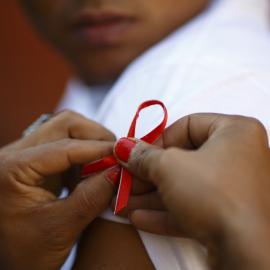To the Editor:
Holly Burkhalter provides us with a long-awaited perspective on the positive contributions of conservative and liberal philosophies for controlling the HIV/AIDS epidemic ("The Politics of AIDS," January/February 2004). Her discussion points out that both points of view are integral to controlling the relentless worldwide spread of HIV. She concludes, "If a common front can be matched with some common sense, the results could be truly impressive."
But within her otherwise excellent presentation, she succumbs to the very temptation that she seeks to overcome: questioning the relative efficacy of abstinence versus prevention approaches. There are no studies to inform us of how different types of behavior affect the rate of HIV infection, but one can safely conclude that it is lowered by more than one factor: use of condoms, mutual monogamy, delayed sexual intercourse, and, yes, abstinence. Add to this HIV counseling and testing, needle exchange programs, testing of blood products, and prevention of mother-to-child HIV transmission, and you have a comprehensive public health approach for prevention.
In this context, the relative contribution of an individual prevention method is unimportant. What counts is an integrated approach to the control of HIV that treats each method of prevention as essential. Such an approach is absolutely essential if we are ever to control this devastating epidemic.
Arthur J. Ammann
President, Global Strategies for HIV Prevention
